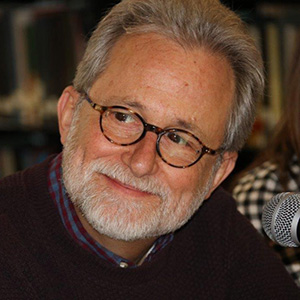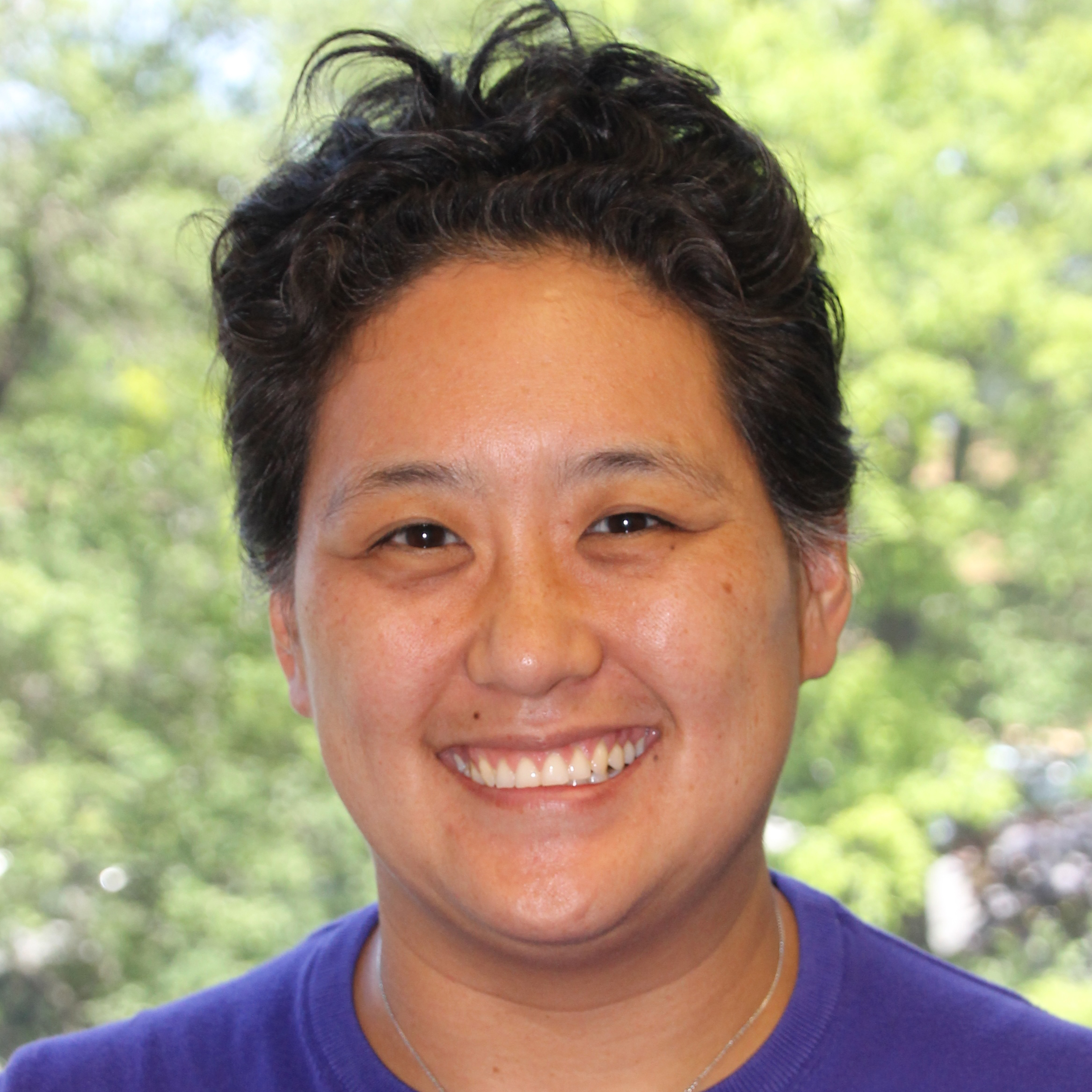Roundtable discussion: “The Promise and Perils of Social and Behavioral Genomics”
Event Details
The National Human Genome Research Institute (NHGRI) of the National Institutes of Health will host a virtual roundtable to discuss social and behavioral genetics and genomics, including their benefits, limitations and potential for misuse. Social genomics is a field of emerging research that suggests scientists can use genomic variation to understand complex social behavior. Panelists will discuss genetics and genomics studies that may be stigmatizing as well as strategies for scientists to combat misinformation and disinformation.
While many promise that the study of genomic variants can help us better understand ourselves and our world, others are concerned that recent scientific developments have helped fuel the rise of harmful ideologies, such as white supremacy and antisemitism.
The scientific community must consider whether the misappropriation of genetic evidence has played any role in mass casualty events and other forms of extremist violence. The panel will address how the history of scientific racism and eugenics in genetics and genomics may limited the scientific community’s capacity to respond decisively to the misuse and misappropriation of scientific data.
The news media has also called these avenues of inquiry into question. A recent news feature explores the complex and fraught connections between eugenics, scientific racism, genetics and genomics. Now more than ever, scientists and scholars must understand these connections to safeguard human health and safety.
The event is free and open to the public. Follow #NHGRIevents on social media for more information.
All times are in EST.
Virtual
Recorded Videos
Agenda
- 1:00 - 1:10 p.m. — Welcome and Introduction
Eric Green, NHGRI
Christopher Donohue, NHGRI - 1:10 - 1:40 p.m. — Moderated Discussion: Genetics in postwar social and behavioral research
Moderator: Nayanika Ghosh, Harvard University
Christopher Donohue, NHGRI
Erik Parens, The Hastings Center
Alexandra Minna Stern, University of California, Los Angeles
Melinda Mills, University of Oxford and Nuffield College - 1:40 - 2:00 p.m. — Audience Q&A
- 2:00 - 2:10 p.m. — Break
- 2:10 - 2:40 p.m. — Moderated Discussion: The State of the Science
Moderator: Ashley Smart, Massachusetts Institute of Technology
Daniel Benjamin, University of California, Los Angeles
Daphne Martschenko, Stanford University
Aaron Panofsky, University of California, Los Angeles - 2:40 - 3:00 p.m. — Audience Q&A
- 3:00 - 3:10 p.m. — Break
- 3:10 - 3:40 p.m. — Moderated Discussion: Contemporary Concerns and Communications Challenges
Moderator: Prabarna Ganguly, Nucleus Genomics
Tracy M. King, Eunice Kennedy Shriver National Institute of Child Health and Human Development
Chris Gunter, NHGRI
Rina Bliss, Rutgers University - 3:40 - 4:00 p.m. — Audience Q&A
- 4:00 - 4:05 — Closing Remarks
Biographies

Follow on Twitter: @NHGRI_Director
Dr. Eric Green is the director of the National Human Genome Research Institute (NHGRI) at the U.S. National Institutes of Health (NIH). He is the third NHGRI director, having been appointed by NIH director Dr. Francis Collins in 2009. Dr. Green has been at the Institute for more than 25 years, during which he has had multiple key leadership roles. He served as the Institute’s scientific director for 7 years, chief of the NHGRI Genome Technology Branch for 13 years and founding director of the NIH Intramural Sequencing Center for 12 years. For just over two decades, Dr. Green directed an independent research program that included integral start-to-finish roles in the Human Genome Project and groundbreaking work on mapping, sequencing, and characterizing mammalian genomes. Dr. Green earned his M.D. and Ph.D. degrees in 1987 from Washington University in St. Louis; coincidentally, the word “genomics” was coined in that same year. During his career, Dr. Green has authored and co-authored over 375 scientific publications.

Dr. Christopher Donohue is the historian of the National Human Genome Research Institute. He has edited and co-edited two journal collections since 2018. Two others, on Vitalism and the Contemporary Life Sciences with Charles Wolfe (for Springer Nature) and Perspectives on the Human Genome Project and Genomics with Alan Love (for Minnesota Studies in Philosophy of Science) are under review. A further volume for Patterns of Prejudice on “Slavdom,” genes and “Race Science”: Between Nation-Building and the Global Racial Imaginary is in preparation with Victoria Shmidt and Christian Promitzer. He is also completing a book under contract for Central European University Press entitled "The Master Race in that Sense": Defenses of Eugenics and Sterilization After the Second World War.

Follow on Twitter: @philbio7
Nayanika is a Ph.D. candidate in the History of Science at Harvard University where she researches histories of Cold War science, postwar biological determinism and science critique. Her dissertation examines the emergence of a political critique of science in the context of the U.S. sociobiology debates of the 1970s and 1980s. The sociobiology debates were prompted by the publication of E.O. Wilson’s Sociobiology: The New Synthesis — which popularized gendered evolutionary theories of male dominance, xenophobia, hierarchy and violence — in 1975. When critics in the life sciences mobilized their resources to oppose what they argued was a return to pre-war genetic determinism, what ensued was a larger conflict over science, politics and justice. In documenting the opposition, she posits that the study of a political critique of science emerged from the efforts of scholars and non-university actors embedded in feminist, antiwar, labor and antiracist activism in the 1970s. She ends this history in the late 1980s, when, from this critique, emerged reformulations of scientific objectivity and value neutrality. Her work has been supported by the American Philosophical Society, Cold Spring Harbor Laboratory's Center for Humanities and History of Modern Biology and the Consortium for History of Science, Technology and Medicine. Before coming to the history of science, she trained as an anthropologist and a philosopher of biology.

Dr. Erik Parens is a senior research scholar at The Hastings Center and Director of the Center’s Initiative in Bioethics and the Humanities. His first project on the Ethical, Legal and Social implications of genetic research in the 1990s, offered a sympathetic and critical examination of the disability rights critique of prenatal genetic testing. Since then, he has directed 3 other projects that seek to advance an anti-ableist perspective. In the 2000s, he directed an ELSI project that produced a collection of essays called “Wrestling with Behavioral Genetics.” With his co-principal investigator Michelle Meyer, Dr. Parens is completing a project called, “Wrestling with Social and Behavioral Genomics.” Both of those later projects have brought together researchers and scholars with vastly different disciplinary backgrounds and perspectives to wrestle with what genetics can—and cannot—tell us about who we are as human beings, and with how genetics might be used to promote—or thwart—human flourishing.
Dr. Parens is a founding member of Columbia University’s NIH-funded Center for Excellence in Ethical, Legal, and Social Implications of the Human Genome Project and is a Fellow of the Center for Neuroscience and Society at the University of Pennsylvania. He has served as a consultant to several government and nongovernmental bodies, including the American Academy of Arts and Sciences, the National Academy of Medicine, the National Bioethics Advisory Commission, and the Presidential Commission for the Study of Bioethical Issues.

Alexandra Minna Stern, Ph.D. is the dean of humanities and professor of english and history, and in the Institute for Society and Genetics at the University of California, Los Angeles (UCLA). Prior to moving to UCLA, she was the Carroll Smith-Rosenberg Collegiate Professor of American culture, history and women’s and gender studies and professor of obstetrics and gynecology at the University of Michigan. Most of her research has focused on the uses and misuses of genetics in the United States and Latin America. She is the author of the award-winning Eugenic Nation: Faults and Frontiers of Better Breeding in Modern America which was published in second edition by University of California Press in 2015. She also is author of Telling Genes: The Story of Genetic Counseling in America a Choice 2013 Outstanding Academic Title in Health Sciences. Her most recent book, Proud Boys and the White Ethnostate: How the Alt-Right is Warping the American Imagination applies the lenses of historical analysis, feminist studies and critical race studies to deconstruct the core ideas of the far right and white nationalism in the United States. Stern is the founder and co-director of the Sterilization and Social Justice Lab, which uses mixed methods to study patterns and experiences of eugenic sterilization in the twentieth-century United States; this research has informed the recently passed reparations bill to compensate survivors of compulsory sterilization in California. Stern has held numerous grants including from the National Endowment for the Humanities, National Institutes of Health and the Robert Wood Johnson Foundation.

Follow on Twitter: @melindacmills @OxfordDemSci
Dr. Melinda Mills is the Nuffield professor of demography and director of the Leverhulme Centre for Demographic Science, University of Oxford; and professor of data science and public health policy at the Department of Genetics and Department of Economics, Econometrics & Finance in Groningen, The Netherlands. She has published seven books and over 120 articles across multiple disciplines. Her research is in the area of sociogenomics, where she led the first GWAS on reproductive behavior. She also co-created www.GWASDiversityMonitor.com which highlights the lack of diversity in genomic samples, and recently published an applied textbook on statistical data genetic analysis (2020, MIT Press).

Follow on Twitter: @ashleythesmart
Ashley Smart is the associate director of the Knight Science Journalism Program at MIT and a senior editor at Undark magazine. He previously spent eight years as an editor and reporter at Physics Today magazine and was a 2015-16 Knight Science Journalism Fellow. Smart has served on the advisory boards of the Open Notebook and the Council for the Advancement of Science Writing, and he is co-editor of A Tactical Guide to Science Journalism: Lessons From the Frontlines.

Dr. Dan Benjamin is a professor in the Behavioral Decision Making Group at the University of California, Los Angeles (UCLA) Anderson School of Management and in the Human Genetics Department at the UCLA David Geffen School of Medicine. He is a co-founder and co-director of the Social Science Genetic Association Consortium (SSGAC), which aims to promote the responsible use of and responsible communication about genetic data in social science research. Together with the SSGAC, he has conducted genome-wide association studies on educational attainment, subjective well-being, neuroticism, depression, fertility, general risk tolerance and dietary intake, as well as a variety of other behavioral and health phenotypes. From 2016 to 2021, Dr. Benjamin also co-organized the Russell Sage Foundation’s Summer Institute in Social-Science Genomics, which provided training and Ethical, Legal and Social Implications education to researchers entering the field. Outside of social science genomics, he conducts research in behavioral economics focused on understanding people’s errors in probabilistic reasoning and measuring well-being through survey questions about happiness and life satisfaction. Dr. Benjamin received his Ph.D. in Economics from Harvard University in 2006.

Follow on Twitter: @daphmarts
Dr. Daphne Oluwaseun Martschenko is an assistant professor at the Stanford Center for Biomedical Ethics. She holds an M.Phil. from the University of Cambridge in Politics, Development, and Democratic Education and in 2019 received a Ph.D. in Education, also from the University of Cambridge. Dr. Martschenko’s work advocates for and facilitates research efforts that promote socially responsible research on, communication of, and community engagement with social and behavioral genomics. Public engagement is important to Dr. Martschenko; she has appeared on podcasts such as Freakonomics Radio, and had her work published in publicly accessible media outlets like Scientific American and The Conversation.

Dr. Aaron Panofsky is a professor of public policy and sociology and director of the Institute for Society and Genetics, and Sociology at the University of California, Los Angeles (UCLA). His book, Misbehaving Science: Controversy and the Development of Behavior Genetics is a historical analysis of how coping with a series of controversies has limited scientists’ efforts to understand the inheritance of behavior. He has also studied public participation in science through internet mediated platforms and patient advocacy in rare genetics research. An ongoing project concerns scientists’ perception and management of “reproducibility crisis” across fields in contemporary science. His current research focus is on race and genetics from various perspectives: the ambiguities of the race concept in genetics; how behavior geneticists manage race researchers in their midst; and how racists understand genetics research and appropriate it for their purposes. Related questions will be pursued in a new direction which is to study how scientists manage causal, phenotype definition, practical, ethical, and population uncertainties as they develop polygenic risk scores for application in clinical, commercial, and policy contexts.

Prabarna Ganguly is the chief communications officer at Nucleus Genomics. Her work focuses on ensuring that the science, philosophy and the company's core offerings are disseminated to the public in an honest, authentic and unique manner. Ganguly previously worked at the National Human Genome Research Institute as a senior science communications specialist, where she received multiple awards, including the 2022 NIH Director's Award for her efforts in unraveling the history of eugenics and scientific racism. Ganguly received her Ph.D. in psychology with a focus on behavioral neuroscience from Northeastern University in 2018. Her freelance work has been published by numerous outlets, including Salon and SciShow.

Tracy King, M.D., MPH, is a medical officer in the Intellectual and Developmental Disabilities Branch (IDDB), at the Eunice Kennedy Shriver National Institute of Child Health and Human Development (NICHD). She currently oversees the NICHD portfolio on Fragile X syndrome and chairs the Trans-NIH Fragile X/FMR1 working group. She works closely with the NICHD-funded Intellectual and Developmental Disabilities Research Centers (IDDRC) program as well as the NIH Rare Disease Clinical Research Network (RDCRN).
Dr. King earned a bachelor’s degree in biological sciences from Stanford University and a medical degree from Baylor College of Medicine. Following pediatric residency training at the Boston Medical Center and Boston Children’s Hospital, she completed a research fellowship in general academic pediatrics and a master’s in public health at Johns Hopkins. Prior to joining NICHD in 2015, she was a faculty member in general pediatrics at Johns Hopkins and conducted research on improving early identification of children with developmental delays in primary care settings.

Follow on Twitter: @girlscientist
Dr. Chris Gunter is the Senior Advisor for Genomics Engagement at the National Human Genome Research Institute, and the head of the Engagement Methods Unit in the Social Behavioral Research Branch. The overarching theme to her career has been science communication in and around human genetics and neurodevelopmental conditions. She earned her Ph.D. in human genetics at Emory University and then completed postdoctoral work at Case Western Reserve University. Following that, she worked in editorial positions for Human Molecular Genetics, Science, and Nature, and currently at the preprint server bioRxiv. She also spent time in nonprofit work and academia, serving as the director of research affairs at the HudsonAlpha Institute for Biotechnology, and as an associate professor in pediatrics and human genetics at the Emory University School of Medicine. Her lab’s work has two major foci: scientific studies on autism genetics, and studies on genetic literacy and public understanding of science.

Dr. Rina Bliss is an associate professor of sociology at Rutgers University. She is the award-winning author of Race Decoded: The Genomic Fight for Social Justice and Social by Nature: The Promise and Peril of Sociogenomics. Her research explores the personal and societal significance of emerging genetic sciences.
Additional Resources
Report: Facing Our History - Building an Equitable Future Initiative (PDF)
American Society of Human Genetics - January 24, 2023
Avoiding Ableist Language: Suggestions for Autism Researchers
by Kristen Bottema-Beutel, Steven K. Kapp, et al.
High-profile autism genetics project paused amid backlash
by Katharine Sanderson
Social and behavioral science at the forefront of genomics: Discovery, translation, and health equity
by Laura M. Koehly, Susan Persky, et al.
The genes we’re dealt
by Erik Parens
The science of terrible men
by Kathryn Paige Harden
FAQs about “Polygenic prediction within and between families from a 3-million-person GWAS of educational attainment”
by the Social Science Genetic Association Consortium
Problems with Using Polygenic Scores to Select Embryos
by Patrick Turley, Daniel J. Benjamin, et al.
Genomics, Behavior, and Social Outcomes
by Daphne O. Martschenko and Lucas J. Matthews
Genomic Findings on Human Behavior and Social Outcomes
by Daphne O. Martschenko and Lucas J. Matthews
Social by Nature
by Catherine Bliss
Genetic ancestry testing among white nationalists: From identity repair to citizen science
by Aaron Panofsky and Joan Donovan
Getting genetic ancestry right for science and society
by Anna C. F. Lewis, Aaron Panofksy, et al.
How white nationalists mobilize genetics: From genetic ancestry and human biodiversity to counterscience and metapolitics
by Aaron Panofsky, Kushan Dasgupta and Nicole Iturriaga
California’s sterilization survivors: an estimate and call for redress
by Alexandra Minna Stern, Nicole L Novak, et al.
Disproportionate sterilization of Latinos under California’s eugenic sterilization program, 1920-1945
by Nicole L Novak, Alexandra Minna Stern, et al.
Last updated: January 27, 2023
